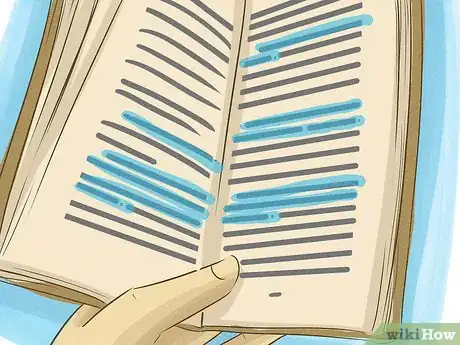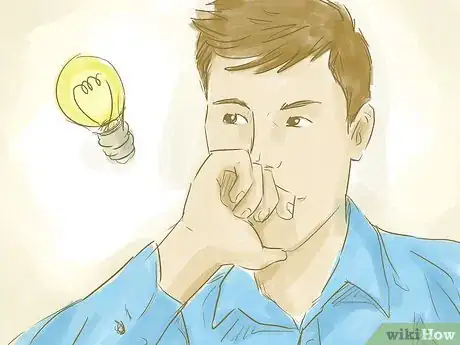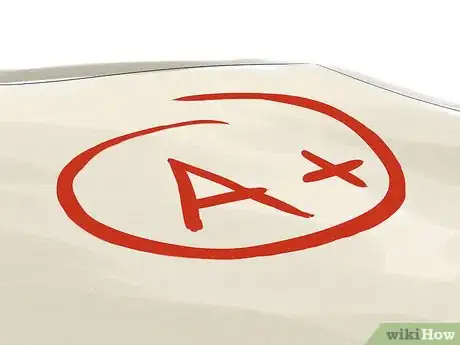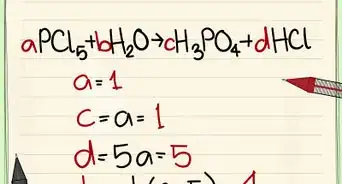This article was co-authored by Chris Hasegawa, PhD. Dr. Chris Hasegawa was a Science Professor and the Dean at California State University Monterey Bay. Dr. Hasegawa specializes in teaching complex scientific concepts to students. He holds a BS in Biochemistry, a Master’s in Education, and his teaching credential from The University of California, Davis. He earned his PhD in Curriculum and Instruction from The University of Oregon. Before becoming a professor, Dr. Hasegawa conducted biochemical research in Neuropharmacology at the National Institute of Health. He also taught physical and life sciences and served as a teacher and administrator at public schools in California, Oregon, and Arizona.
This article has been viewed 79,552 times.
Have you enrolled in AP Chemistry for the semester? Good for you—this challenging course is a great way to expand your academic horizons (and possibly earn college credit!). Although AP Chemistry definitely isn't easy, there are plenty of ways you can set yourself up for success in the months to come. Read on for plenty of tips and tricks to help you put your best foot forward in this exciting stage of your academic journey.
Steps
Expert Q&A
-
QuestionHow can I study organic chemistry by myself?
 Chris Hasegawa, PhDDr. Chris Hasegawa was a Science Professor and the Dean at California State University Monterey Bay. Dr. Hasegawa specializes in teaching complex scientific concepts to students. He holds a BS in Biochemistry, a Master’s in Education, and his teaching credential from The University of California, Davis. He earned his PhD in Curriculum and Instruction from The University of Oregon. Before becoming a professor, Dr. Hasegawa conducted biochemical research in Neuropharmacology at the National Institute of Health. He also taught physical and life sciences and served as a teacher and administrator at public schools in California, Oregon, and Arizona.
Chris Hasegawa, PhDDr. Chris Hasegawa was a Science Professor and the Dean at California State University Monterey Bay. Dr. Hasegawa specializes in teaching complex scientific concepts to students. He holds a BS in Biochemistry, a Master’s in Education, and his teaching credential from The University of California, Davis. He earned his PhD in Curriculum and Instruction from The University of Oregon. Before becoming a professor, Dr. Hasegawa conducted biochemical research in Neuropharmacology at the National Institute of Health. He also taught physical and life sciences and served as a teacher and administrator at public schools in California, Oregon, and Arizona.
Retired Science Professor & Dean Use a whiteboard to make the material as concrete as possible! Everybody says that organic chemistry is the hardest class in the world, but it's not—you just have to get to a point where you can see it easily and visualize it.
Use a whiteboard to make the material as concrete as possible! Everybody says that organic chemistry is the hardest class in the world, but it's not—you just have to get to a point where you can see it easily and visualize it. -
QuestionHow can I learn to love chemistry?
 Community AnswerStart by trying to avoid negative thoughts and words about chemistry. Think positive! Read each chapter in your textbook again and again until the information makes sense and is easy for you to recall. You can even write down important points to study more closely. Write down all of the reactions you need to know and their mechanisms, results, etc.; study these closely and often. The more comfortable you get with the subject, the more you will enjoy it.
Community AnswerStart by trying to avoid negative thoughts and words about chemistry. Think positive! Read each chapter in your textbook again and again until the information makes sense and is easy for you to recall. You can even write down important points to study more closely. Write down all of the reactions you need to know and their mechanisms, results, etc.; study these closely and often. The more comfortable you get with the subject, the more you will enjoy it. -
QuestionShould I take AP Chemistry next year by taking the first year of chem over the summer? And can I take it with AP European History and Honors English?
 Community AnswerI remember that struggle! If you're good with formulas, memorization, and understanding applications and the "bigger idea" of everything, you should be fine. Honors English for me was a breeze, but that could've just been my teacher. As for APEH, that was my first AP. I'll admit the class was a bit rigorous at times, but you could also buy external study resources, such as the Barron's and Princeton Review books.
Community AnswerI remember that struggle! If you're good with formulas, memorization, and understanding applications and the "bigger idea" of everything, you should be fine. Honors English for me was a breeze, but that could've just been my teacher. As for APEH, that was my first AP. I'll admit the class was a bit rigorous at times, but you could also buy external study resources, such as the Barron's and Princeton Review books.
Warnings
- Always wear school-assigned lab safety goggles during lab procedures to avoid contact with chemicals that could possibly damage your vision.⧼thumbs_response⧽
- Rinse your hands, arms and any other body parts (e.g. eyes, hair) that could have possibly came into contact with lab materials bearing chemicals.⧼thumbs_response⧽
- In respect to this article's title, an AP Chemistry classroom can also potentially be a dangerous environment, as many hazardous chemicals such as sulfuric acid, hydrochloric acid, and of course highly flammable gases are almost always used on a routinely basis. Take caution and follow all instructions carefully when performing labs with chemicals and other materials which can be harmful to you or to others in the classroom.⧼thumbs_response⧽
- Wear a welder's helmet or other qualified device to protect your eyes from bright ultraviolet light rays and infrared lights when conducting lab reactions that produce sparks.⧼thumbs_response⧽
































































